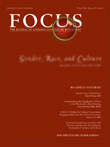Given space limitations and varying reprint permission policies, not all of the influentual publications the editors considered reprinting in this issue could be included. This section contains abstracts from additional articles the editors deemed well worth reviewing.
Assessing Patients’ Capacities to Consent to Treatment
Appelbaum PS, Grisso T
New England Journal of Medicine 1988; 319:1635–1638
The right of patients to accept or refuse recommended treatment requires careful reassessment when their decision-making capacities are called into question. Patients must be informed appropriately about treatment decisions and be given an opportunity to demonstrate their highest level of mental functioning. The legal standards for competence include the four related skills of communicating a choice, understanding relevant information, appreciating the current situation and its consequences, and manipulating information rationally. Since competence is a legal concept and can be formally determined only in court, the clinical examiner’s proper role is to gather relevant information and decide whether an adjudication of incompetence is required. Treatment for impairment of mental functioning can sometimes restore patients’ capacities, making it unnecessary to deprive them of their decision-making powers.
A Systematic Review of the Mortality of Depression
Wulsin LR, Vaillant GE, Wells VE
Psychosomatic Medicine 1999; 61:6–17
Objective: The literature on the mortality of depression was assessed with respect to five issues: 1) strength of evidence for increased mortality, 2) controlling for mediating factors, 3) the contribution of suicide, 4) variation across sample types, and 5) possible mechanisms. Method: All relevant English language databases from 1966 to 1996 were searched for reviews and studies that included 1) a formal assessment of depressive symptoms or disorders, 2) death rates or risks, and 3) an appropriate comparison group. Results: There were 57 studies found; 29 (51%) were positive, 13 (23%) negative, and 15 (26%) mixed. Twenty-one studies (37%) ranked among the better studies on the strength of evidence scale used in this study, but there are too few comparable, well-controlled studies to provide a sound estimate of the mortality risk associated with depression. Only six studies controlled for more than one of the four major mediating factors. Suicide accounted for less than 20% of the deaths in psychiatric samples, and less than 1% in medical and community samples. Depression seems to increase the risk of death by cardiovascular disease, especially in men, but depression does not seem to increase the risk of death by cancer. Variability in methods prevents a more rigorous meta-analysis of risk. Conclusion: The studies linking depression to early death are poorly controlled, but they suggest that depression substantially increases the risk of death, especially death by unnatural causes and cardiovascular disease. Future well-controlled studies of high risk groups may guide efforts to develop treatments that reduce the mortality risk of depression.

